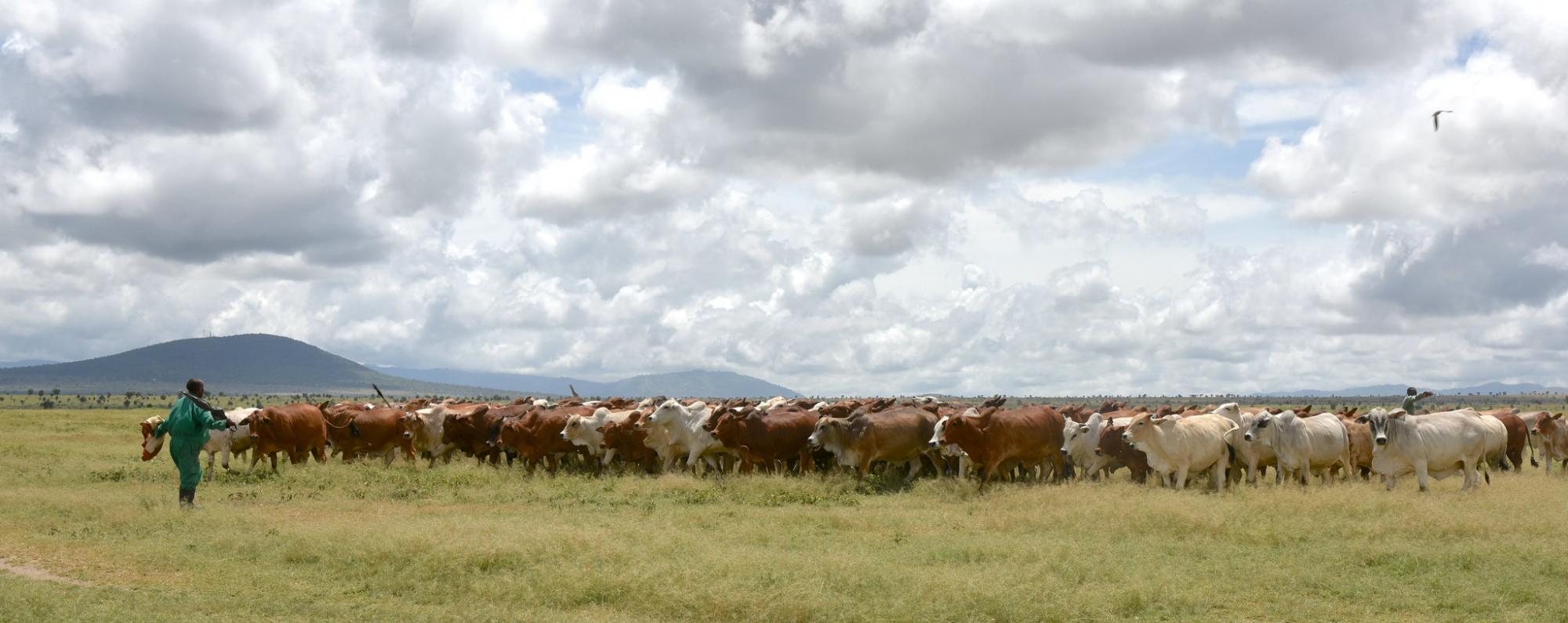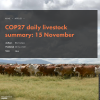
COP27 daily livestock summary: 15 November
Core message
On 15 November, the Environmental Defense Fund and Center for Climate and Resilience Research hosted a COP27 side-event called ‘The Health-Methane Nexus: Opportunities for Action’. The event was held to raise awareness of the intersection between methane mitigation strategies and public health, elevate health considerations in prioritizing methane mitigation strategies and identify opportunities to accelerate action. With countries poised to act under the Global Methane Pledge, now is the perfect time to explore how we can improve global public health through methane abatement.
Adrian Fernandez, executive director of the activist organization Iniciative Climatica de Mexico, kicked off the discussion by noting that ‘there are multiple co-benefits of controlling methane in the health field’. Runaway methane emissions have caused people around the world to be exposed to ozone at levels far above international health standards. Fortunately, Fernandez sees opportunities to address methane emissions in the oil and gas sector by reducing leakages in existing facilities as well as lessening our dependence on oil and gas as drivers of development. ‘These efforts can also prevent communities near oil and gas facilities from exposure to a variety of other toxic compounds’, said Fernandez, again highlighting the co-benefits of methane abatement measures for public health.
Building on Fernandez’s comments, Carolina Urmeneta of the Global Methane Hub, noted that ‘we need concrete solutions to significantly reduce methane emissions in the next couple of decades’. Urmeneta believes that an important step is bringing together health and environmental ministries in order to work together to take full advantage of methane abatement’s co-benefits. Urmeneta also promoted additional research on methane emissions from often overlooked sources, such as landfills, which can help governments understand the full extent of their emissions as well as avenues for reducing them.
The final speaker was ILRI principal scientist Todd Crane, whose livestock-focused research provides a useful entry point for the connections between methane and health. ‘The livestock sector provides opportunities for improving resource use efficiencies to ensure that more livestock products are produced per unit of methane’, said Crane. Efforts to improve the productivity of livestock systems, especially in the Global South where productivity remains low, will help lower methane emissions as well as improve human health through enhanced nutritional security.
However, there are still a variety of remaining challenges. ‘At the microscale, the immediate challenge is identifying on-farm practices that can contribute to reducing methane emission intensity while also being feasible and promoting farmer profitability’, said Crane. For example, although methane biodigesters, which capture methane from livestock manure and turn it into fuel for household cooking, may reduce methane emissions and respiratory illnesses caused by charcoal and wood-burning stoves, they are cost-prohibitive for most poor smallholder farmers. ‘We need to find the sweet spot that makes these things profitable and approachable for smallholder farmers’, said Crane.
At the macro-level, Crane sees the main challenge as being a ‘pervasive anti-livestock discourse amongst global funders’. While there are many parts of the world that over-produce and over-consume meat, this is not the case in Africa where per capita meat consumption is much lower than in the developed world. Moreover, vegetarian and vegan diets are not viable in places like northern Kenya where livestock are the only source of key proteins and nutrients.
Rather than solving problems, Crane argues that anti-livestock mitigation strategies in Africa would ‘lead to an alienation of livelihoods, reductions in nutritional security and a loss of what has been an integral part of dryland Africa’s ecology for millennia’. Instead, Crane believes we should invest in adaptation mechanisms in Africa that promote livelihoods and food security while bringing mitigation co-benefits.
The event concluded with a discussion of the top priorities moving forward. ‘What is essential to have on these agendas is a climate justice perspective’, said Crane. Often overlooked, climate justice perspectives are critical to ensuring that methane reduction strategies are tailored to local contexts and are viable for local populations. By elevating climate justice perspectives in international discussions surrounding the environment like COP27, we can create a world that is not only more sustainable but also more equitable.
